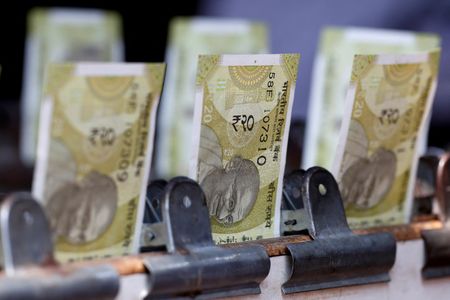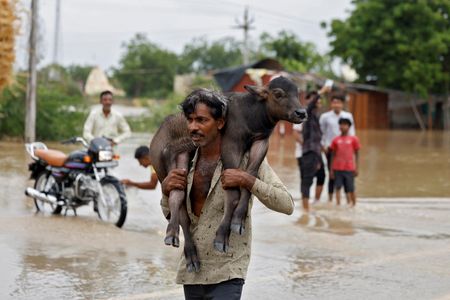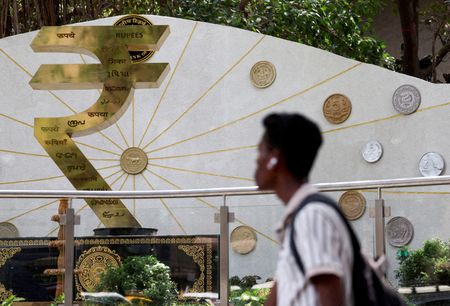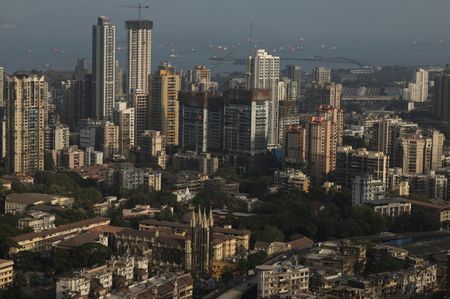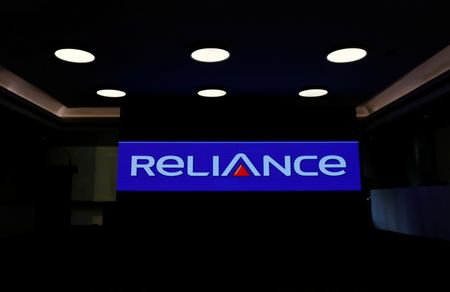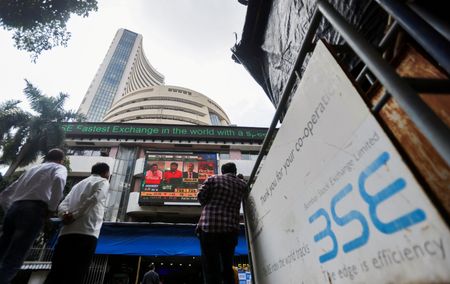By Dharamraj Dhutia
MUMBAI (Reuters) -The Indian rupee posted its fifth consecutive monthly fall against the U.S. dollar, and hit a record low on Tuesday, as trade tensions between India and the United States escalated, pushing up dollar demand.
The rupee settled at 88.7875 against the U.S. dollar, its weakest ever closing level, and down slightly from its close of 88.7600 on Monday.
Earlier in the day, the currency declined to an all-time low of 88.8000.
The currency fell 0.7% in September, posting its fifth consecutive monthly decline, and is down a cumulative 5% in last five months.
“The rise in the trade deficit, coupled with limited intervention from the central bank, has weighed on the rupee in recent months, despite its trade-weighted valuation suggesting it is undervalued,” said Dilip Parmar, a foreign exchange research analyst at HDFC Securities.
The future trajectory of the rupee will be highly dependent on foreign fund flows, developments in the U.S.-India trade agreements, and the dollar’s reaction to the U.S. government shutdown, he added.
“From a technical perspective, the outlook for the pair remains bullish, with 89.10 acting as immediate resistance and 88.20 as a key support level.”
Trade frictions between India and the U.S. has persistently strained the rupee in recent weeks.
Washington’s 50% punitive tariffs on Indian goods and the hike in H-1B visa fees, which is expected to hit India harder than any other country, have driven foreign investors to pull money out of equities.
Analysts warn this U.S. decision could weigh on revenues in India’s technology sector and trigger renewed equity outflows and further hurt the local currency.
Foreign investors have accelerated their selling of Indian stocks following the visa fee increase, pulling more than $2 billion from the market over the past six sessions.
The Reserve Bank of India has been stepping in to slow the rupee’s slide without which the currency would have fallen much more, bankers said.
(Reporting by Dharamraj Dhutia; Editing by Janane Venkatraman)

